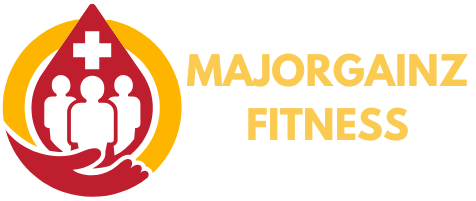In the ever-evolving world of women’s health, finding the right partner can feel like dating in a sea of options—overwhelming yet exciting. Women health partners play a crucial role in navigating everything from routine check-ups to those awkward conversations about menopause. They’re the trusted allies who know that sometimes laughter is the best medicine, even when discussing the not-so-fun stuff.
Imagine having a health partner who not only understands your unique needs but also makes your visits feel less like a chore and more like a catch-up with an old friend. With the right support, women can tackle their health goals with confidence and a bit of humor. After all, who said health discussions can’t come with a side of laughter? Dive in to explore how these partnerships can transform women’s health journeys for the better.
Table of Contents
ToggleOverview of Women Health Partners
Women health partners play a crucial role in supporting women’s health needs and navigating various health concerns. These partners include professionals like obstetricians, gynecologists, primary care physicians, and mental health specialists. Each partner offers unique expertise, ensuring comprehensive care for women at different life stages. Evaluating available options helps women find the right match for their health journey.
Communication forms the foundation of effective partnerships. Trust and mutual understanding foster environments where women can discuss sensitive issues openly. Engaging in regular check-ups allows for early detection of potential health problems. Women health partners also provide education on topics like reproductive health, prenatal care, and menopause.
Holistic approaches characterize many women health partnerships as they address physical, emotional, and mental health collectively. Incorporating lifestyle advice, preventive care, and personalized health plans enhances the overall well-being of women. For example, partners can recommend participating in wellness programs, engaging in regular exercise, and maintaining balanced diets.
In addition to medical expertise, emotional support proves invaluable. Women often face unique psychological challenges related to health issues. Health partners who prioritize empathy and compassion can ease anxiety and build confidence.
Menopause, one of the significant transitions in a woman’s life, merits particular attention. Health partners can provide guidance on managing symptoms and navigating hormonal changes. Resources like counseling or support groups further empower women during this stage.
Overall, health partners equip women with knowledge, confidence, and support necessary for their health journeys.
Importance of Women Health Partners
Women health partners play a crucial role in providing tailored support for various health needs. They understand the unique challenges women face and work to address them effectively.
Support for Women’s Health Needs
Support for women’s health comes in many forms. Health partners include obstetricians, gynecologists, and mental health specialists who offer guidance on reproductive health and emotional well-being. Expert providers equip women with the tools to manage their health, including education on menopause and pregnancy. Personalized care fosters a trusting relationship, allowing women to speak openly about their concerns. Prioritizing empathy strengthens this bond, ensuring that health partners provide not only medical advice but also emotional support. Many women find comfort in knowing they have a dependable advocate in their corner for life’s transitions and challenges.
Promoting Preventative Care
Promoting preventative care is essential for women’s long-term health. Regular check-ups with health partners enable early detection of potential health issues. These professionals recommend testing and screenings tailored to each woman’s age and health history. Education on lifestyle choices also plays a vital role in disease prevention. By encouraging healthy habits, health partners empower women to make informed decisions about their well-being. Effective communication fosters awareness about preventative measures, ensuring that women remain proactive regarding their health. Prioritizing these screenings reduces long-term health risks and leads to healthier lifestyles overall.
Types of Women Health Partners
Women health partners come in various forms, each contributing uniquely to overall health and well-being.
Healthcare Providers
Healthcare providers play a critical role in women’s health. Obstetricians and gynecologists specialize in reproductive health, ensuring comprehensive care during pregnancy and beyond. Primary care physicians handle routine check-ups and provide holistic health assessments. Mental health specialists focus on emotional well-being, offering support for conditions like anxiety and depression. Each of these professionals tailors their approach based on individual patient needs. Personalized care plans often result from effective communication, fostering trust between patients and providers. By prioritizing preventative care measures, these providers enable early detection of health issues, ultimately enhancing women’s quality of life.
Community Organizations
Community organizations contribute significantly to women’s health by promoting awareness and education. These organizations often offer resources related to reproductive rights, wellness programs, and mental health support. Workshops and seminars facilitate discussions about critical health issues, empowering women through knowledge. Many organizations also provide access to essential services, such as screenings and counseling, on a sliding scale or for free. By collaborating with healthcare providers, these organizations can address the unique challenges women face in their communities. Collective efforts to advocate for health equity ensure that women receive comprehensive support during various life stages.
Benefits of Collaboration
Collaboration with health partners delivers significant advantages for women. These partnerships enhance overall health by integrating personalized care and resources.
Enhanced Access to Resources
Access to diverse resources improves when women collaborate with health partners. Health professionals connect women with essential services like nutrition counseling, mental health support, and fitness programs. Obstetricians and gynecologists often provide educational materials specific to reproductive health, ensuring women are informed on critical topics. Community organizations also play a crucial role by offering workshops on wellness, preventative care, and reproductive rights. Collaborating with these entities equips women with the tools they need to navigate health challenges confidently.
Improved Health Outcomes
Health outcomes improve significantly through collaboration with health partners. Regular check-ups and screenings increase early detection of potential health issues. Studies demonstrate that women who engage with their health partners tend to follow treatment plans more closely, resulting in better health management. Personalized health plans address unique needs, while continuous support fosters adherence to preventative care measures. Mental health considerations further enhance outcomes by providing emotional support, promoting psychological well-being. Strong partnerships ultimately lead to healthier lifestyles and improved overall well-being in women.
Challenges Faced by Women Health Partners
Navigating health care presents numerous challenges for women health partners, impacting their ability to provide comprehensive care.
Funding and Resource Limitations
Funding constraints often hinder the ability of women health partners to deliver optimal services. Limited budgets restrict access to necessary resources for comprehensive care. These professionals frequently struggle with insufficient financial support for their initiatives. They face difficulties in acquiring diagnostic tools and technology essential for effective treatment. Addressing these limitations remains a crucial aspect for improving women’s health outcomes. Without adequate funding, programs aimed at preventative care and education often fall short.
Awareness and Education Gaps
Education gaps significantly affect awareness surrounding women’s health issues. Many clients lack access to vital information about reproductive health and available services. This lack of awareness impairs effective communication between health partners and women seeking care. Increasing outreach efforts can bridge these gaps and enhance understanding. Providers often see the need for targeted education campaigns tailored to specific communities. Workshops focused on sensitive health topics can promote informed discussions and empower women in their health journeys.
Finding the right health partner is crucial for women navigating their unique health journeys. These partnerships offer essential support and guidance tailored to individual needs. By fostering effective communication and trust, women can engage openly with their health partners about sensitive topics.
Regular check-ups and preventative care play a vital role in early detection and overall well-being. Emotional support from empathetic professionals can ease anxiety and empower women during significant life transitions. Collaborations with community organizations further enhance access to resources and promote health equity.
As women seek to prioritize their health, it’s essential to advocate for the resources and education necessary for comprehensive care. With the right support, women can confidently pursue their health goals and transform their experiences positively.




